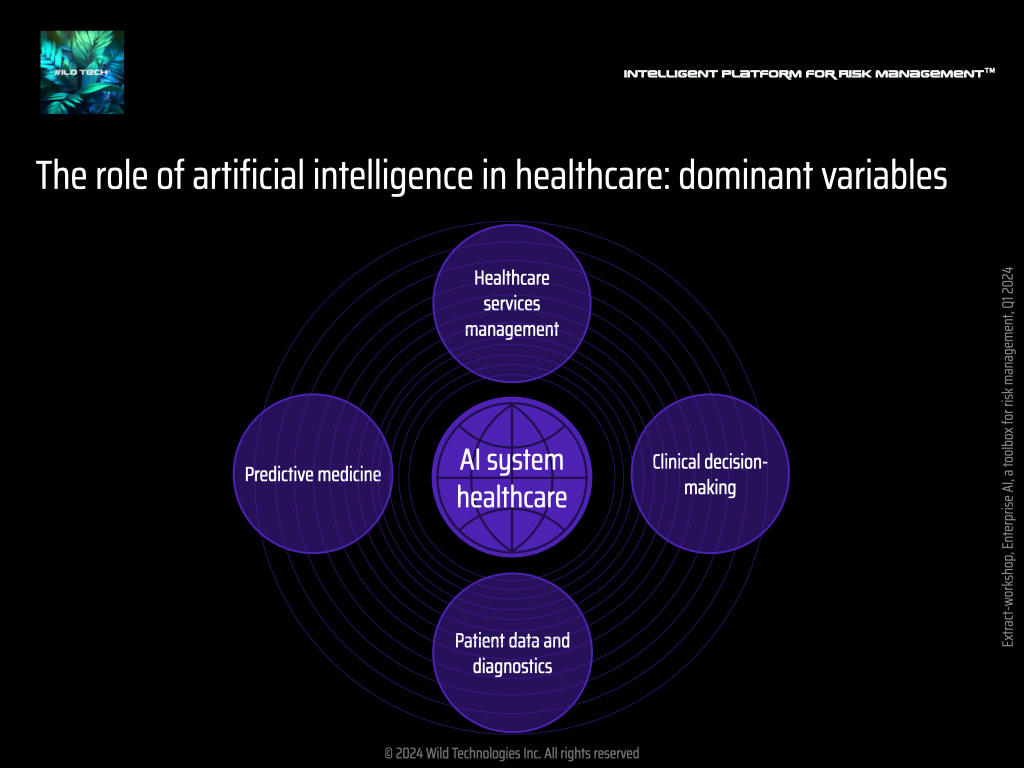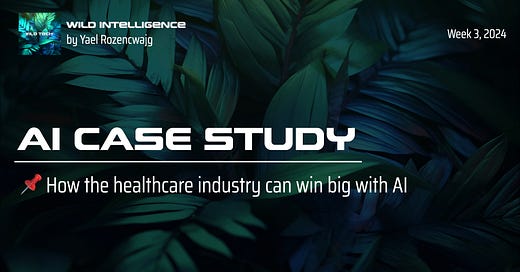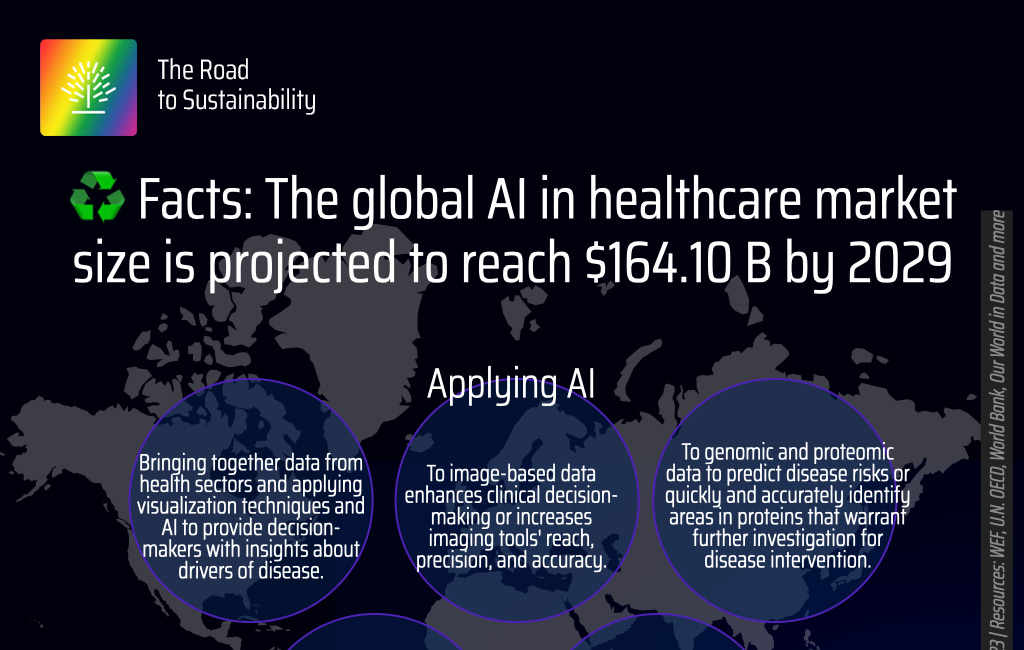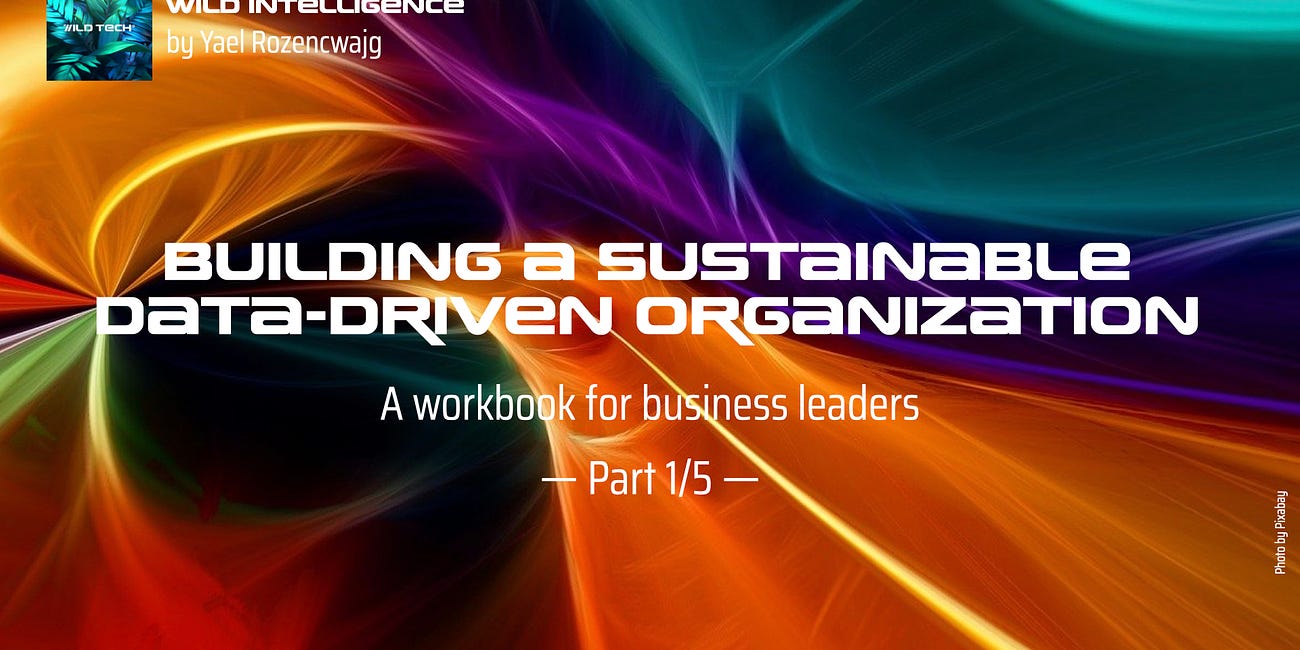📌 How the healthcare industry can win big with AI
AI case studies: #2024-03 | How AI is transforming the world?
In 2021, AI in healthcare market was worth around $11B worldwide. It was forecast that the global healthcare AI market would be worth almost $188B by 2030.
AI-powered diagnostics use patients' histories to identify potential health issues, initially serving as aids to human physicians.
⇒ Healthcare services management: barriers include addressing privacy concerns, advancing technology, and gaining acceptance for advanced applications from patients, healthcare providers, and regulators.
⇒ Clinical decision-making: AI can help physicians make better clinical decisions or even replace human judgement in healthcare-specific functional areas.
⇒ Patient data and diagnostics: they augment diagnoses, continuously learning and improving through interaction.
⇒ Predictive medicine: over time, the collaboration between AI and healthcare may lead to autonomous AI diagnostic systems.

Ethical issues of artificial intelligence in medicine and healthcare
But, “before integrating artificial intelligence with the healthcare system, practitioners and specialists should consider all four medical ethics principles, including autonomy, beneficence, nonmaleficence, and justice in all health care.”
Doctors and nurses are expected to provide treatment in an empathetic and compassionate environment, which will significantly affect the healing process of patients. This will not be achieved with robotic physicians and nurses. Patients will lose empathy, kindness, and appropriate behavior when dealing with robotic physicians and nurses because these robots do not possess human attributes such as compassion. This is one of the most significant negative aspects of artificial intelligence in medical science.
Another problem that threatens societies following the development of AI is the social gap issue. In all countries worldwide, with every growth, discovery, and invention, people face greater social inequality and less social justice. Although AI improves the accessibility to more information about science and technology, world events, climate changes, and politics worldwide, it exacerbates social inequality.
Source: Ethical Issues of Artificial Intelligence in Medicine and Healthcare on NIH.
Continue reading
♻️ Facts: The global Artificial Intelligence in healthcare market size is projected to reach $164.10 billion by 2029
Data overload plagues many healthcare organizations. As a result, their boards, executives, and managers lack the data required to identify areas for development and measure progress toward addressing them. → This difficulty, however, can be solved through collaborations with healthcare organizations. But it requires time and public/private budgets.
Explore more
Artificial intelligence in disease diagnosis: a systematic literature review, synthesizing framework and future research agenda by the National Center for Biotechnology Information (NCBI)
Why applying machine learning to biology is hard – but worth it on Future
Share you thoughts
How do you think artificial intelligence is transforming the world?
Please take a moment to comment and share your thoughts.
Continue exploring
Workbook: Building a sustainable data-driven organization, part 1
Hello, This workbook is based on conversations with AI startup founders and engineers. We present it as an evolving planner to help founders and leaders integrate the central notions of building a sustainable data-driven organization. There are many ways to build business solutions and tools with AI, including open-source models, LLMs, training models, fine-tuning, or using hosted APIs, all from scratch. But we also see a surge of interest in data-driven business acquisitions among large companies. It entails buying an existing solution, not starting it from zero, with the potential for more autonomy and ownership.
📌 AI case studies
You are receiving this email because you signed up for Wild Intelligence by Yael Rozencwajg. Thank you for being so interested in our newsletter!
AI case studies are part of Wild Intelligence, approaches and strategies.
We share tips to help you lead, launch and grow your sustainable enterprise.
Become a premium member, and get our tools to start building your AI based enterprise.






AI's ability to detect COVID-19 from coughs faces real-world challenges: https://www.news-medical.net/news/20240208/AIs-ability-to-detect-COVID-19-from-coughs-faces-real-world-challenges.aspx